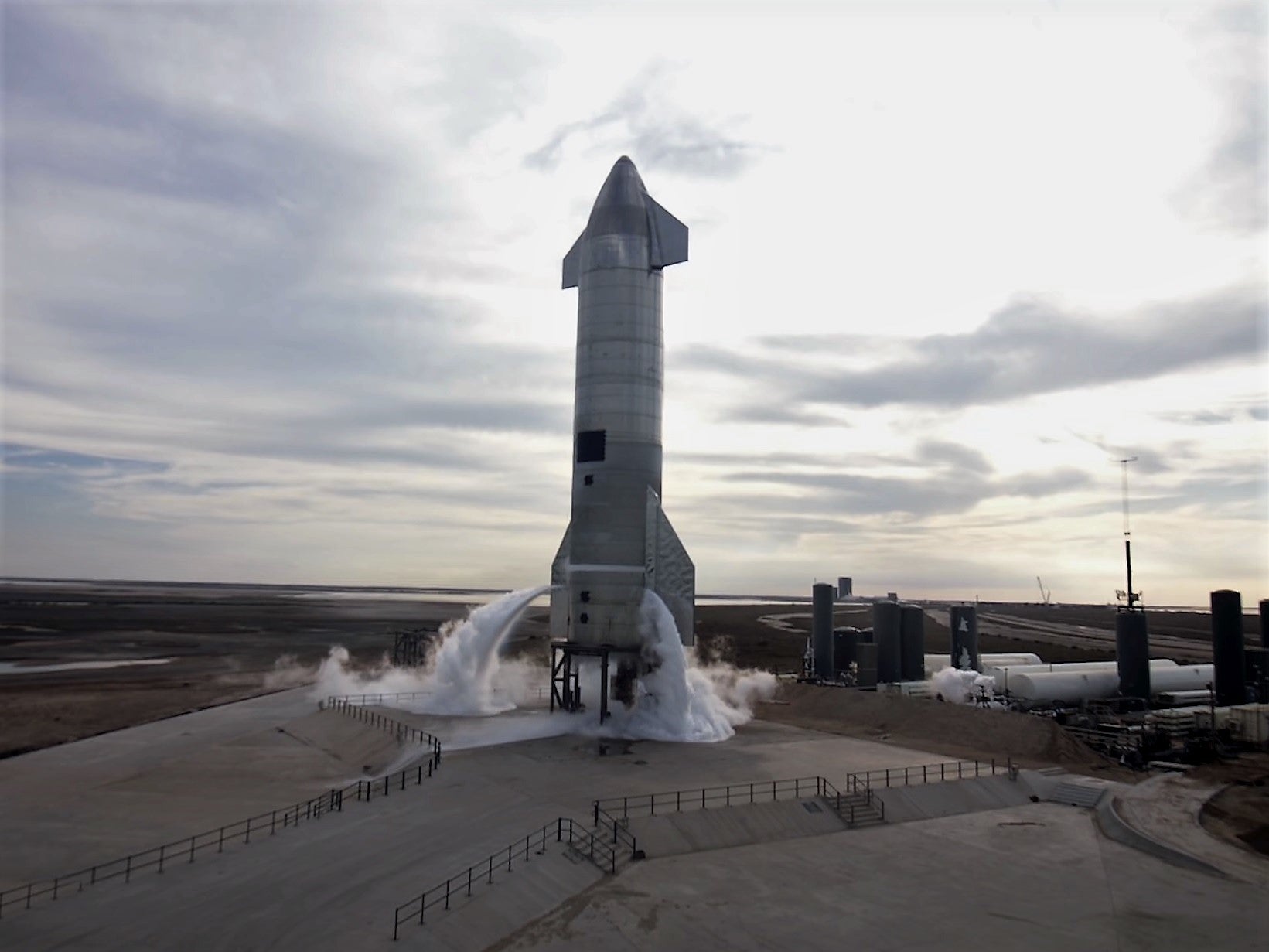SpaceX scrubs Starship SN11 launch at last minute
‘FAA inspector unable to reach Starbase in time for launch today,’ Elon Musk says

Your support helps us to tell the story
From reproductive rights to climate change to Big Tech, The Independent is on the ground when the story is developing. Whether it's investigating the financials of Elon Musk's pro-Trump PAC or producing our latest documentary, 'The A Word', which shines a light on the American women fighting for reproductive rights, we know how important it is to parse out the facts from the messaging.
At such a critical moment in US history, we need reporters on the ground. Your donation allows us to keep sending journalists to speak to both sides of the story.
The Independent is trusted by Americans across the entire political spectrum. And unlike many other quality news outlets, we choose not to lock Americans out of our reporting and analysis with paywalls. We believe quality journalism should be available to everyone, paid for by those who can afford it.
Your support makes all the difference.SpaceX’s latest attempt to test its Mars-bound Starship rocket has been scrubbed due to issues with the Federal Aviation Administration (FAA).
Starship SN11 was on the launchpad at SpaceX’s Starbase facility in Boca Chica, Texas, when Elon Musk tweeted that the launch attempt had been delayed.
“FAA inspector unable to reach Starbase in time for launch today,” he wrote. “Postponed to no earlier than tomorrow.”
The launch window was just over an hour away from opening, with the set back marking the latest in a long succession of Starship delays.
The 10km launch and landing was originally scheduled to take place on Friday but had to be postponed due to technical issues with the next-generation spacecraft.
Read more:
Despite the delays, the rate of testing for the Starship prototypes has been remarkable.
The first high-altitude flight test took place in December, ending in a fiery explosion for Starship SN8. A similar outcome occurred in February for Starship SN9, before SN10 finally stuck the landing in early March - although eight minutes after landing it also exploded.
SpaceX hopes to perform the first ever orbital flight of a Starship with a super heavy booster attached by July, with production potentially beginning later this year or in 2022.
The first commercial flight of Starhip is scheduled for 2023, when Japanese billionaire Yusaku Maewa will take eight members of the public on a trip around the moon.
The first uncrewed mission to Mars will then take place in 2024, before a crewed Starship mission two years later.
Mr Musk’s eventual goal is to built a self-sustaining colony on Mars in order to transform humanity into a multi-planetary species, which he claims could happen as early as 2050.
Join our commenting forum
Join thought-provoking conversations, follow other Independent readers and see their replies
Comments